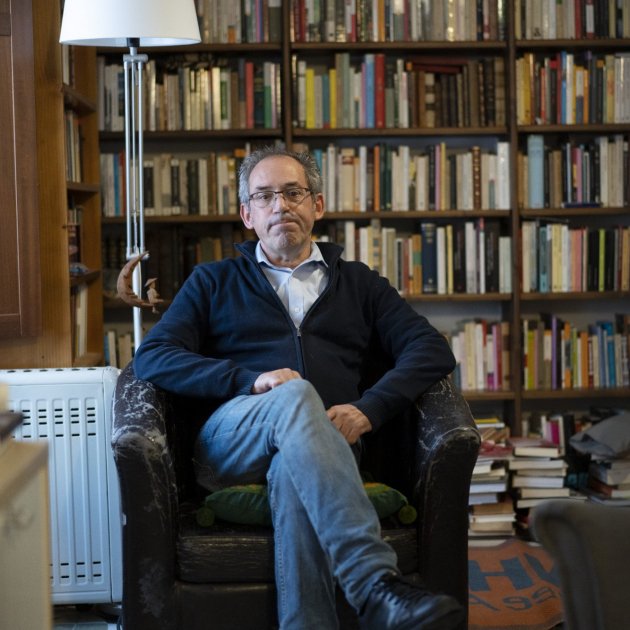Spanish constitutional law professor Joaquín Urías has railed against the Supreme Court for its decision to maintain the arrest warrant against Carles Puigdemont for misuse of public funds. The former Constitutional Court lawyer expressed his regret that the high court's ruling released on Monday means, as he put it powerfully and bluntly, "the end of the amnesty". Through a post on X, he asserted that after months of debate the Supreme Court has "stated that the amnesty is not going to be applied in Spain" and added that the most "terrible" thing is that the judicial blockade is not a decision taken for legal reasons. Urías denounced that Supreme Court has "invented", "without the need for any proof" that if the pro-independence leaders had not paid for "the promotion of the referendum" with public money, they would have done so "out of their own pockets". Therefore, he added, "from this invented presumption it follows that they saved money, and therefore they have become richer". This personal "enrichment" thus was used by the judges to exclude the misuse of funds offences from being covered by the amnesty law, even though none of the pro-independence leaders pocketed a single euro.
Court uses "infantile arguments", says Urías
In his post on X, Urías went on to observe that according to the Supreme Court a possible independence of Catalonia "would decrease the income of the European Union" and, therefore, the judges deduce that what the leaders of the independence process did affects the interests of the European Union - another of the exclusionary motives contained in the legislation - and thus the offences cannot be amnestied. Summing up this logic on the independentists' "enrichment" and the effects on the EU, Urías denounced that the Supreme Court's arguments "are infantile. Unbecoming of any jurist". However, Urías affirms that he does not believe that judge Manuel Marchena "is such a bad jurist", and therefore, he says, "it is possible to deduce that the ruling does not respond to legal reasons". Nevertheless he concludes that the amnesty will never be applied because "these judges do not respect the popular will made into law, and they act like politicians".
Door slam by the Supreme Court
The constitutional law expert's statements follow two rulings by the Spanish Supreme Court released on Monday. Essentially, the court refused to apply the amnesty law in two of its key cases - the jailed Catalan leaders who were tried over the independence process in 2019, and those in exile who remain accuse of the same crimess - justifying that the crime of misuse of funds could not be amnestied, and thus ruling that the cases of Carles Puigdemont, Oriol Junqueras, and former ministers Toni Comín, Lluís Puig, Raül Romeva, Jordi Turull and Dolors Bassa were outside the scope of the law. In addition, the court also maintains the arrest warrants in Spain against Puigdemont, Comín and Puig. On the other hand, judge Pablo Llarena considers that the case of Marta Rovira falls within the amnesty provisions and leaves her arrest warrant without effect, but he does not extinguish the bans on holding office for Junqueras, Romeva, Turull and Bassa, which without an amnesty will remain in force until 2030 and 2031.
Llarena concludes that the conduct of Puigdemont and the two former ministers in exile, Comín and Puig, "falls fully within the two exceptions provided by the law for amnesty for misuse of funds offences, which are that they were carried out with the purpose of obtaining a personal benefit of a patrimonial nature and that they affect the financial interests of the European Union". In this regard, he states that "they were the ones who conceived the plan to achieve the independence of Catalonia and they adopted a government agreement under which they assumed certain costs from their departments. Consequently, the acts making available the administration's assets to the referendum were radically linked to a personal benefit and had a marked patrimonial character".
Carles Puigdemont ironically defined the actions of the Supreme Court by comparing them to the mafia via a play on words. In a three-word post on X, he wrote: "La Toga Nostra". For his part, lawyer Gonzalo Boye compared the situation in Spain with that of Albania in the 80s, when that country was ruled by a communist dictatorship under Enver Halil Hoxha. Boye recalled that Albania was isolated, as justice is now in Spain, since "judge Pablo Llarena's orders only have value in Spain, which has been encapsulated. The Supreme Court has de facto removed Spain from the European Union". For this reason, he assured that the Supreme Court's rulings are not legally serious.
